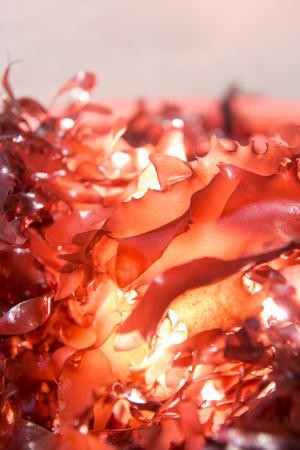Researchers have just patented a seaweed strain that when it's fried or smoked, can taste almost like bacon. The dulse seaweed is readily available in markets as a cooking ingredient however, this new strain can grow faster where scientists are finding new ways to prepare and cook with it.
Oregon State University researchers including a professor in the fisheries and wildlife department, Chris Langdon, have successfully bred a fast growing strain some 15 years ago that was originally intended for sea snails.
This dulse seaweed is a red algae that is native to the Pacific and Atlantic coasts that contains lots of vitamins and minerals including antioxidants. In dried form, it can pack a protein amount of 16 percent.
Langdon says that this project was to create a super food for abalone which is a popular dish in Asia where the dulse can absorb the carbon dioxide and ammonia from the abalone that transforms them into protein and nutrients. The abalone then eats the dulse where this method is also utilized in Hawaii.
However, Langdon says that he halted this project during the late 90s but he continues to grow the dulse even without the presence of abalone.
This new study however was revived by OSU's College of Business instructor, Chuck Toombs where he paid a visit to the the Hatfield Marine Science Center searching for projects for his students. He saw the seaweed's potential where he transferred it to the OSU's Food Innovation Center.
According to OSU's Food Innovation Center director, Michael Morrissey, this strain looks really promising due to the rate of how quick it grows. The seaweed sells for at least US $60 a pound but Morissey says that this can be made more affordable eventually.
When the news broke out, the Oregon Department of Agriculture also recognized the seaweed's potential that they have approved a grant for research at OSU, making dulse a specialty crop.
The research team also invited a Chicago native chef, Jason Ball who worked with seaweed dishes before in Copenhagen. The chef came up with 50 ideas for dulse and experimented with instant ramen, sourdough bread and even beer.
Research panels taste tested the finished products and decided that a commercial product such as a salad dressing can become most profitable. The team will innovate a rice cracker and peanut butter brittle with bacon flavor after this project.



























